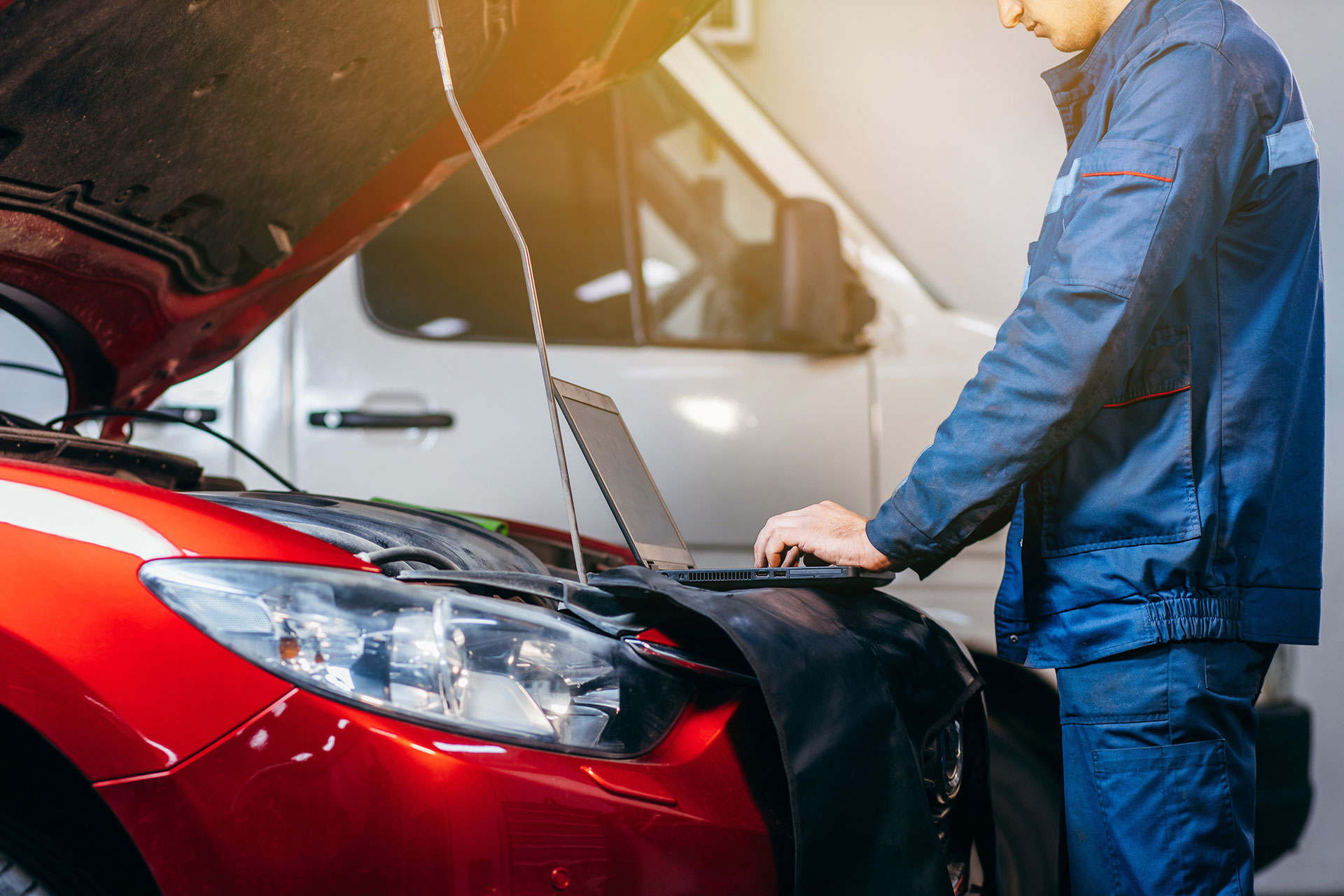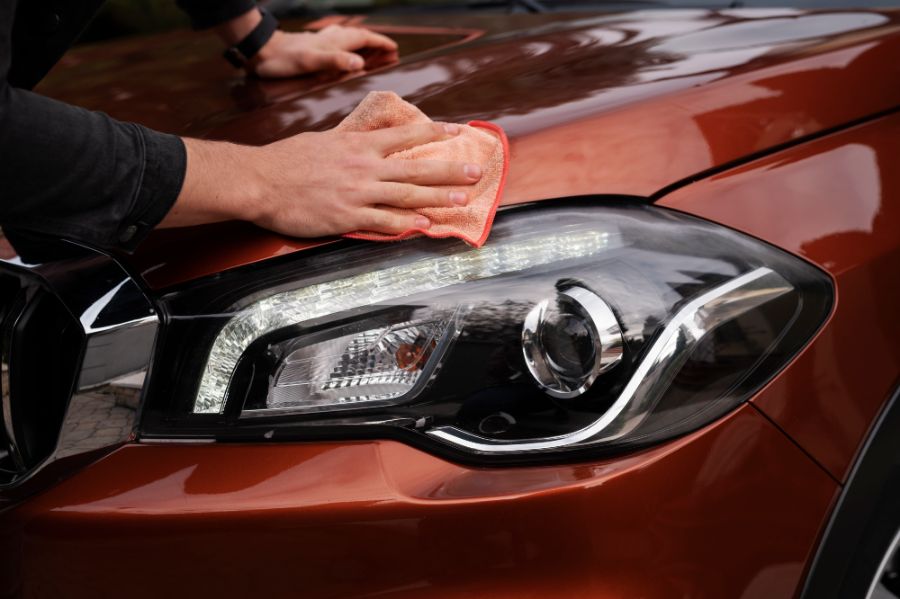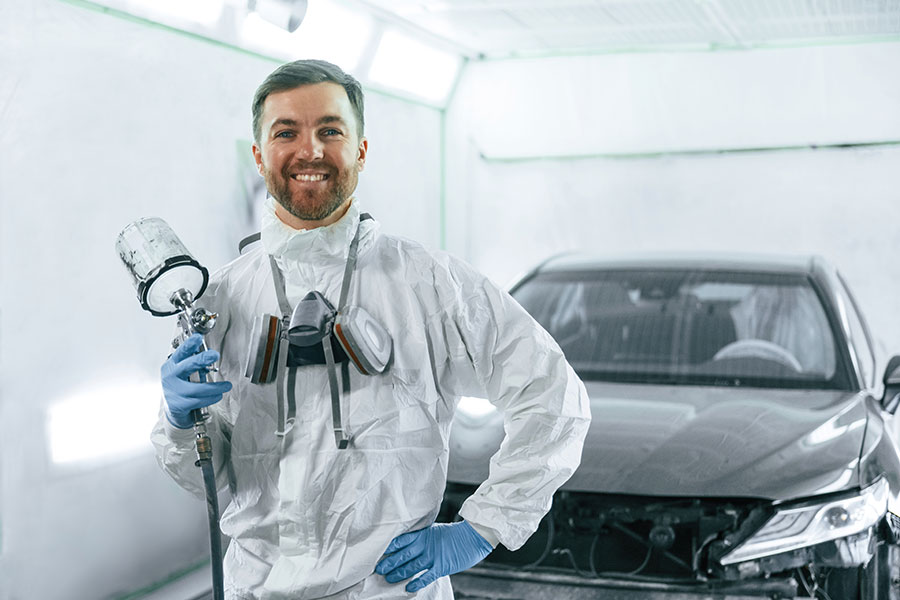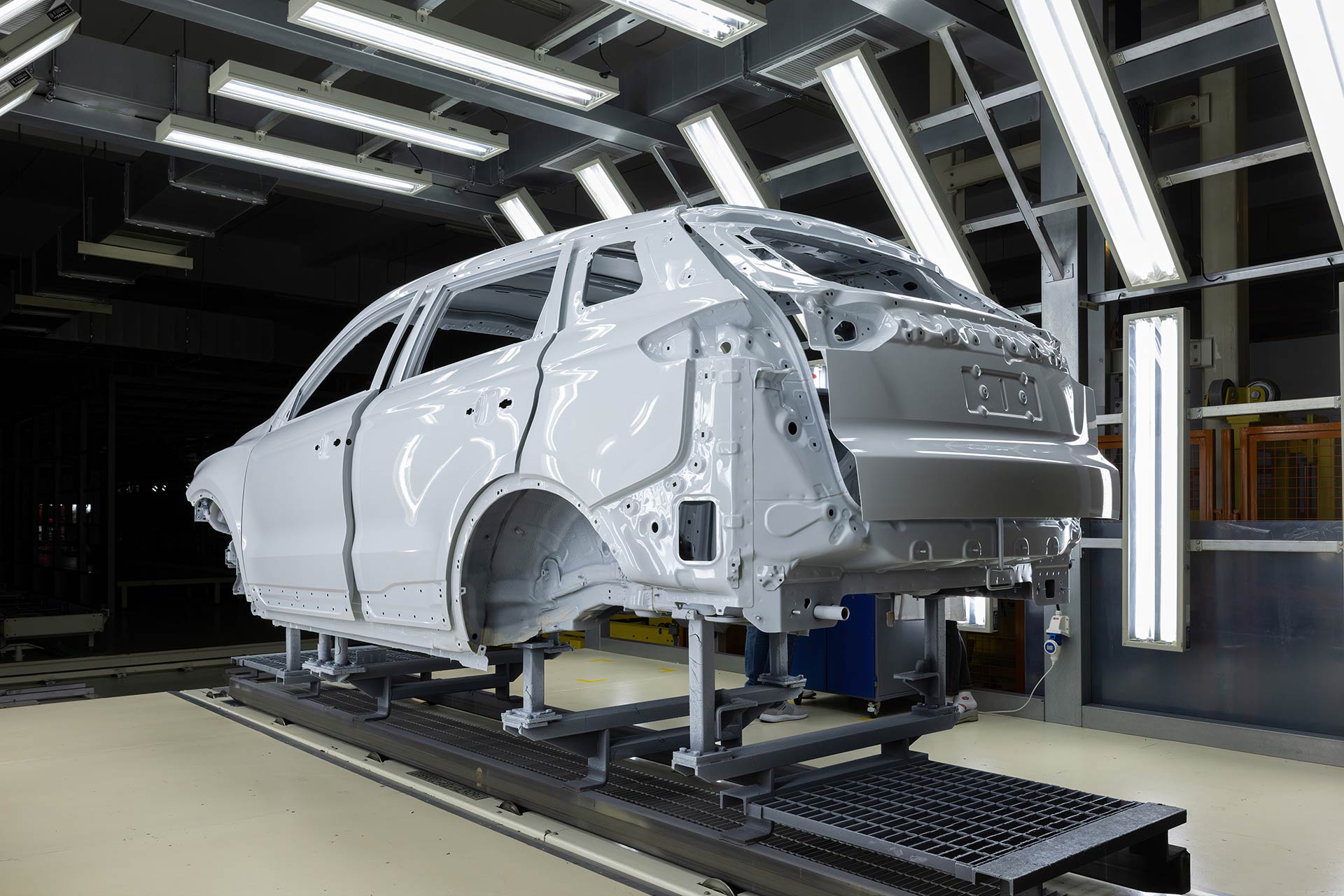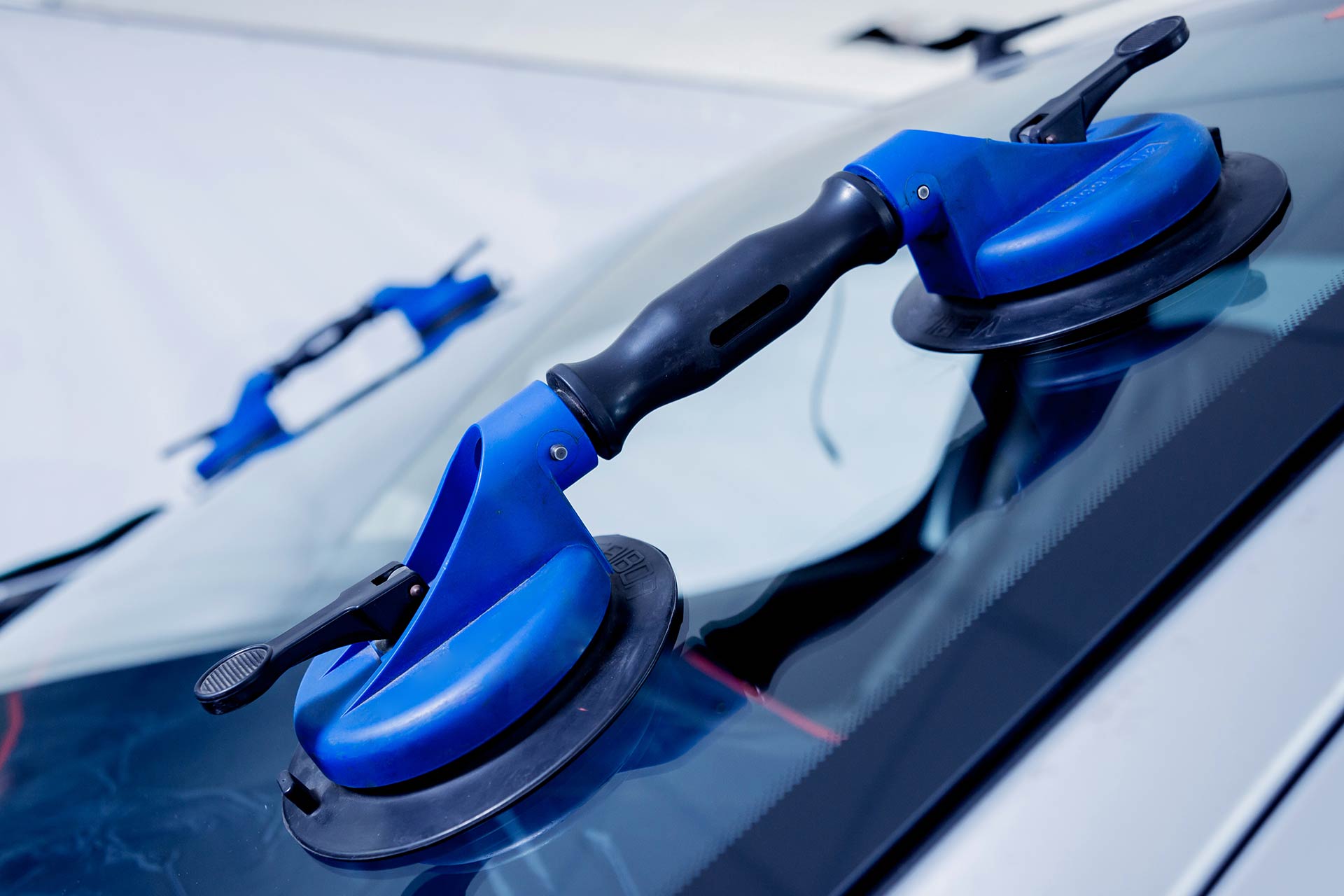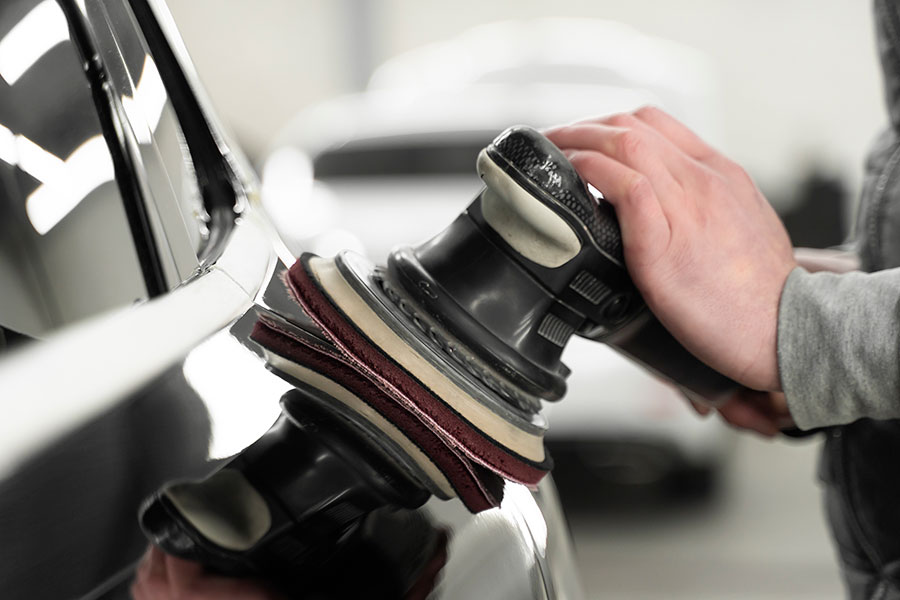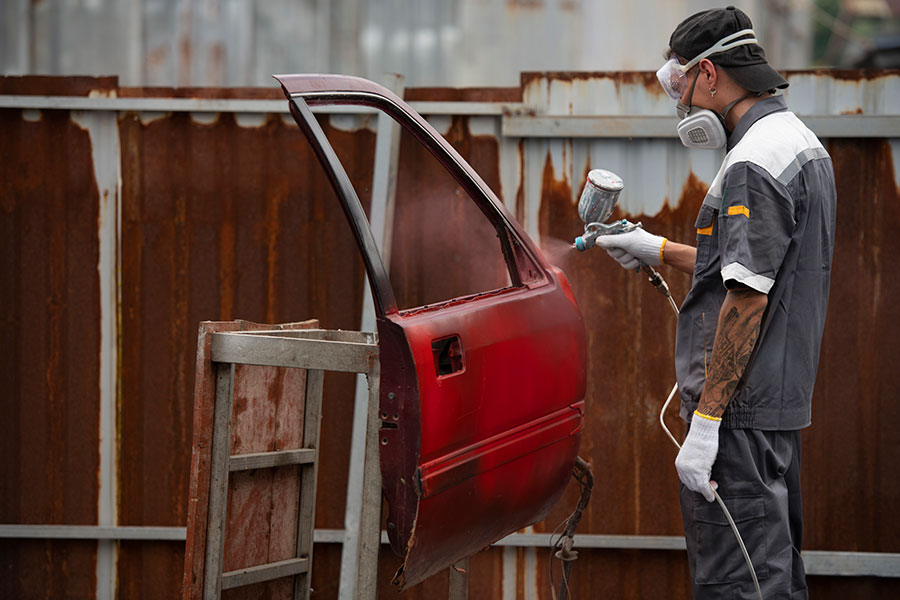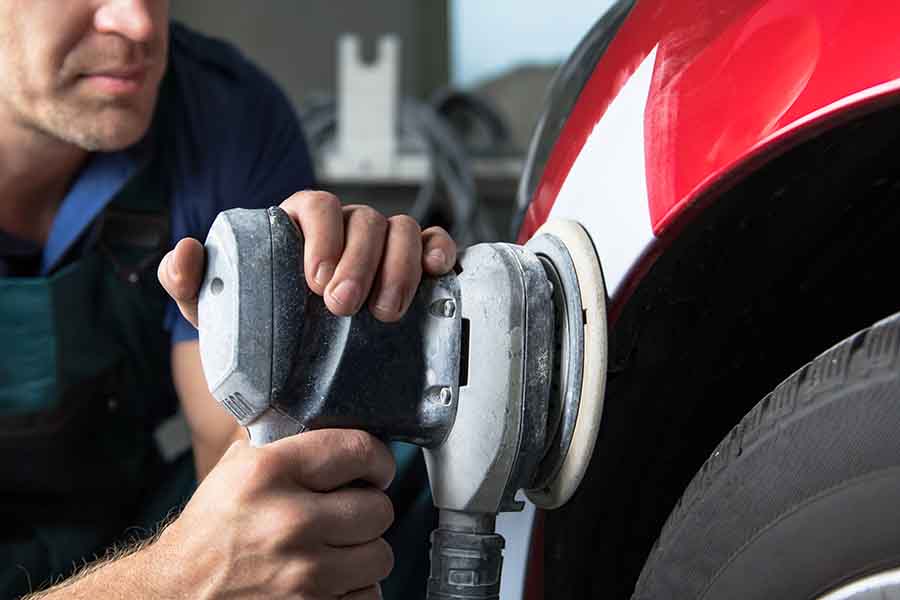When your car dents its pride in a fender bender, finding the best "auto body shop near me" shifts from a casual search to an urgent mission. Unlike the quick fixes and patch jobs hawked by roadside stalls, a reputable auto body shop offers the assurance of quality, reliability, and craftsmanship. In the maze of options, distinguishing between those that will treat your vehicle like their own and those looking to make a quick buck is crucial. This blog post aims to steer you clear of the latter, guiding you towards shops that not only understand your car's needs but also respect your time and budget. Dive in as we navigate the world of auto body repair, ensuring your ride gets the top-notch service it deserves.
Understanding Auto Body Shops
Auto Body Basics
Auto body shops specialize in repairing vehicles after accidents. They fix dents, replace parts, and repaint cars to look new. Unlike mechanical shops that fix engines, auto body shops make sure your car's exterior is flawless.
They offer a wide range of services. From fixing small scratches to repairing major collision damage, these shops handle everything related to the body of your vehicle. They also work on window repairs and sometimes interior fixes that are part of the accident's impact.
Mechanical vs. Body
The main difference between auto body and mechanical repair shops lies in their services. Mechanical shops focus on the car's engine, brakes, and overall functionality. Auto body shops, however, concentrate on the vehicle's exterior.
This distinction is crucial for vehicle owners to understand. It helps them decide where to take their car based on the problem. If your car has engine trouble, a mechanical shop is your go-to. But for dents, scratches, or after an accident, an auto body shop will best meet your needs.
Importance of Auto Body Shops
Maintaining a vehicle's aesthetic and structural integrity is essential. Auto body shops play a significant role in this process. They ensure your car not only looks good but is also safe to drive.
After an accident, even minor damages can affect a car's value and safety. Auto body shops restore this by fixing the damages thoroughly. They use specialized tools and techniques to bring your vehicle back to its original state, or as close to it as possible.
How to Choose a Reliable Auto Body Shop
Online Reviews
Before you decide on a shop, checking online reviews is crucial. Websites like Yelp and Google provide insights from other customers' experiences. They highlight the good and the bad, offering a glimpse into the quality of service and customer satisfaction.
People often share detailed stories about their repairs, timelines, and interactions with the staff. This feedback can guide you toward shops that consistently deliver excellent results. Remember, a few negative reviews among many positive ones can be normal, but a pattern of issues should raise red flags.
Certifications
Certifications are a testament to a shop's commitment to quality. Look for businesses with certifications from recognized industry organizations like I-CAR or ASE. These credentials mean the technicians have undergone rigorous training and testing.
Shops that invest in keeping their team's skills sharp are more likely to perform repairs correctly the first time. Certified technicians understand the latest repair techniques and technologies, ensuring your vehicle is in capable hands.
Trained Technicians
Beyond certifications, inquire about the technicians' experience and training. Skilled technicians are the backbone of any reputable auto body shop. They should have a solid track record of dealing with complex repairs and staying updated on automotive advancements.
A well-trained team can efficiently diagnose issues, recommend solutions, and execute repairs with precision. Their expertise not only guarantees quality workmanship but also helps avoid future problems with your vehicle.
Referrals
Asking friends and family for referrals is another effective strategy to find trustworthy auto body shops. Personal recommendations often come from positive experiences, making them a reliable source of information.
Your social circle can provide insights into shops that offer great customer service, fair pricing, and timely repairs. They might also warn you about places where they had less-than-ideal experiences, helping you narrow down your choices.
Key Functions of Auto Body Shops
Dent Repair
Auto body shops specialize in dent repair, a critical service for maintaining a vehicle's appearance and value. Technicians use specialized tools to gently massage dents from the inside of the vehicle's paneling, restoring the surface without needing to repaint. This process, known as paintless dent repair (PDR), is both cost-effective and time-saving.
For more severe dents that cannot be fixed with PDR, body fillers and sanding techniques are employed before repainting the affected area. These methods ensure the vehicle's exterior looks as good as new.
Painting Services
Repainting is another cornerstone service offered by auto body shops. Whether it's touching up a few scratches or repainting the entire vehicle, these facilities have the tools and expertise to match the original color perfectly. They use high-quality paints and sealing products that protect against rust and weather damage, extending the life of the vehicle.
The painting process involves meticulous preparation, including sanding, priming, and sealing, to achieve a flawless finish. This attention to detail ensures that the paint job lasts for years without fading or peeling.
Body Reconstruction
In cases of significant structural damage, auto body shops perform body reconstruction to restore vehicles to their pre-accident condition. This involves repairing or replacing damaged parts like bumpers, fenders, and door panels. Technicians use advanced welding and fabrication techniques to ensure each piece fits perfectly and meets safety standards.
Body reconstruction can be complex, requiring a deep understanding of the vehicle's design and structural integrity. Auto body shops work diligently to not only fix the cosmetic issues but also ensure the vehicle is safe to drive.
Damage Assessment
Before any repairs begin, auto body shops conduct thorough damage assessments. Using modern diagnostic tools, technicians evaluate both visible and hidden damages to create a comprehensive repair plan. This assessment is crucial for providing accurate repair estimates and timelines.
Insurance Coordination
Auto body shops often collaborate with insurance companies to streamline the repair process. They help customers navigate claims and ensure all necessary paperwork is completed correctly. By working directly with insurers, these shops can expedite approvals for repairs, reducing wait times for customers.
Collision Repair Explained
Damage Assessment
After a vehicle arrives at an auto body shop due to a collision, the first critical step is assessing the damage. Technicians use advanced diagnostic tools to understand the extent of the damage thoroughly. This process involves checking the car's structure and looking for any mechanical issues that might not be visible to the naked eye.
They then develop a detailed repair plan. This plan outlines the necessary repairs, from straightening frames to replacing damaged parts. It ensures that nothing is overlooked.
Modern Tools
In today's auto repair industry, modern technology plays a crucial role in ensuring precise and effective repairs. Auto body shops are equipped with state-of-the-art machinery for tasks like aligning frames and correcting dents. Laser-guided systems and computerized paint mixing solutions stand out for their accuracy.
These tools help technicians restore vehicles to their original condition, often making them look as if the collision never happened. The use of such advanced technology also speeds up the repair process, allowing vehicle owners to get back on the road sooner.
Paint Matching
One of the most noticeable aspects of a vehicle after repairs is its paint job. Achieving an exact color match is essential to maintain the car's original appearance and value. Auto body shops invest in sophisticated color-matching technology that scans the existing paint and creates a formula for the perfect match.
This meticulous process ensures that new paint blends seamlessly with the old, preserving the vehicle's aesthetics. It reflects the shop's commitment to quality and attention to detail.
Estimating Repair Costs
Software Use
Auto body shops now rely heavily on advanced software to estimate repair costs accurately. This technology allows for a detailed analysis of the damage, ensuring that every aspect is considered.
They input data about your car and the damage it has sustained. The software then compares this against a vast database of repair times, parts costs, and labor rates. It provides an itemized list of what repairs are needed and how much they will likely cost.
This approach reduces guesswork and helps shops give customers a clearer picture of the repair process.
Inspection Depth
A thorough inspection plays a crucial role in determining the cost of repairs. Technicians look beyond the surface damage to identify any structural or mechanical issues that might not be immediately visible.
They check the alignment, suspension, and other critical areas to understand the full extent of the damage. This step is vital for creating an accurate estimate. It ensures that no hidden damages are overlooked, which could lead to unexpected costs later on.
Damage Extent
The extent of the damage significantly impacts repair costs. Minor dents and scratches will obviously cost less to fix than major collision damage.
For instance, replacing a bumper will be more straightforward and less expensive than repairing extensive frame damage. The labor involved in more complex repairs also adds to the overall cost.
Parts Needed
Another factor influencing repair costs is the parts needed for the repair. Some cars require specific parts that can be costly or hard to find, especially for older models or luxury vehicles.
Using original manufacturer parts tends to be more expensive than aftermarket options. However, they often offer better quality and fit, which can be important for maintaining your vehicle's value and performance.
Multiple Estimates
Obtaining multiple estimates is crucial for ensuring you get fair pricing for auto body repairs. Not all shops will assess damage in the same way or charge identical rates for labor and parts.
Payment Options for Auto Repairs
Insurance Claims
Many auto body shops work directly with insurance companies to cover the costs of repairs after an accident. This process often starts with filing a claim and waiting for approval.
It's vital to check if the shop is authorized by your insurance provider. This ensures a smoother transaction. Also, be aware that not all damages might be covered. Understanding your policy details can save you from unexpected expenses.
Credit Cards
Credit cards are a widely accepted payment method at auto body shops. They offer a convenient way to handle expenses without needing immediate cash.
Using credit cards can also provide additional protections, like dispute resolution and purchase tracking. However, it's important to consider interest rates and credit limits before choosing this option.
Financing Plans
For larger repair jobs, some shops offer financing options. This means you can pay off the repair costs over time, rather than all at once.
Before agreeing to any financing plan, read the terms carefully. Look out for interest rates and any hidden fees. These plans can be helpful but require a clear understanding of the agreement.
Payment Plans
In certain cases, auto body shops might allow payment plans for extensive repairs. This involves breaking down the total cost into smaller, more manageable payments.
Not every shop offers this flexibility, so it's crucial to ask about this possibility upfront. Agreeing on a payment schedule beforehand can prevent any misunderstandings later on.
Clear Communication
Above all, clear communication about costs and payment expectations is essential. Don't hesitate to ask questions or request detailed explanations of charges.
Knowing exactly what you're paying for helps avoid surprises when the bill comes. It's also wise to get all agreements in writing for future reference.
Legal Considerations in Auto Repairs
Consumer Rights
After an accident, car owners often feel stressed about repairs. Choosing a repair shop is a big decision. Laws protect consumers here. They can pick any auto body shop they trust. Insurance companies might suggest shops, but the choice remains with the car owner.
This freedom ensures repairs are done where the owner feels confident. It's crucial for car owners to know this right. They should not feel pressured to use a specific shop.
Repair Warranties
Warranties on repair work are vital. They give peace of mind. Every reputable auto body shop offers them. But, getting these warranties in writing is key. It protects the consumer if something goes wrong later.
Written warranties detail what's covered and for how long. This clarity is essential for both parties. It prevents misunderstandings and ensures quality work. Consumers should always ask for written warranties before repairs start.
Invoice Requirements
Shops must provide detailed invoices after work is done. This is a legal requirement. Invoices should list all services and parts used during repairs. It makes everything transparent between the shop and the customer.
Customers also have the right to inspect replaced parts. If requested, shops should show these parts. This practice ensures honesty and builds trust.
Comparing Auto Shops and Dealerships
Cost Differences
Auto body shops often offer more affordable rates than dealership service centers. This is because independent shops have lower overhead costs. They can pass these savings onto customers. Dealerships, on the other hand, may charge higher prices due to their specialized brand knowledge and parts.
Independent shops use aftermarket or used parts for repairs, which cost less. Dealerships typically use new, OEM (Original Equipment Manufacturer) parts. These are more expensive but ensure a perfect match and performance.
Technician Expertise
Dealership technicians possess specialized knowledge about specific vehicle brands. They receive training directly from the manufacturer. This makes them experts in your car's make and model.
Auto body shop workers have a broader range of expertise. They work on many types of vehicles. This broad experience allows them to tackle a variety of repair jobs. However, they might not have the same level of brand-specific training as dealership technicians.
Personalized Service
Local auto body shops often provide more personalized service than dealerships. They value building long-term relationships with their customers. Shop owners and mechanics take the time to get to know you and your vehicle.
This personalized approach can lead to better customer support and care. You're not just another number at a local shop. The staff remembers your name and your car's history, offering tailored advice and services.
In contrast, dealerships may offer a more standardized service experience. While professional, it might lack the personal touch found in smaller, independent shops.
Community Support
Choosing a local auto body shop supports the local economy. It keeps money within the community and helps create jobs. Local shops also tend to sponsor community events and charities, further investing in the area's wellbeing.
Dealerships are often part of larger corporate chains with profits going out of the local area. While they do provide employment, their community impact may not be as significant as that of independent shops.
Tips for Auto Body Shop Customers
Document Condition
Before handing over your car for repairs, take detailed photos or videos of its current state. This step is crucial for your records and can help resolve any disputes about the condition of the vehicle post-repair.
It's wise to do the same after getting your car back. Compare the before and after conditions to ensure all agreed-upon work was completed satisfactorily.
Clear Communication
Establishing clear communication with the auto body shop is key. Make sure you understand what repairs will be done, how long they will take, and the costs involved.
Discuss your expectations upfront and confirm that the shop can meet them. If you're coming from comparing auto shops and dealerships, mention any specific concerns or preferences you have based on that research.
Ask Questions
Don't hesitate to ask questions about the repair process. It's important to know how the shop plans to fix your car and if they use new or aftermarket parts.
Inquire about the warranty on repairs to understand what's covered and for how long. Also, ask if there's any maintenance you'll need to do post-repair to keep the warranty valid.
Understanding these details can save you time and money in the long run.
Post-Repair Maintenance
Some repairs might require follow-up care. Ask the shop if there's anything special you need to do or avoid doing with your vehicle after it's repaired.
This could include waiting periods before washing or waxing your car, or specific driving recommendations. Knowing this information helps maintain the quality of the repair work.
Final Remarks
Navigating the world of auto body shops doesn't have to be a headache. You've got the lowdown on everything from picking a trustworthy shop to understanding the nitty-gritty of collision repairs and what it might cost you. Remember, the right shop can make your car look brand new without breaking the bank. It's about knowing your options, understanding the costs involved, and making informed decisions. Whether it's a minor ding or major repairs, choosing the best fit for your car and wallet matters most.
Now, don't just sit there! Your car deserves top-notch care, so start comparing local auto body shops today. Look for expertise, fair pricing, and stellar reviews. Make that call, schedule a visit, and take the first step towards getting your ride back in tip-top shape. Your car will thank you, and you'll thank yourself for taking action. Happy hunting!
Frequently Asked Questions
How do I find a reliable auto body shop near me?
Look for shops with positive reviews, certifications, and a history of satisfied customers. Personal recommendations and checking online ratings are good starting points.
What are the key functions of an auto body shop?
Auto body shops primarily focus on repairing vehicles after accidents. This includes dent removal, painting, and structural repairs to restore your vehicle's appearance and functionality.
Can auto body shops handle collision repairs for any type of vehicle?
Most reputable auto body shops are equipped to repair a wide range of vehicles, including cars, trucks, and SUVs, regardless of make or model.
How are repair costs estimated at auto body shops?
Repair costs are typically estimated using specialized software that considers parts prices and labor work needed. The shop may also perform a thorough inspection to ensure accuracy.
What payment options are available for auto repairs?
Auto body shops usually accept various payment methods, including insurance payments, credit cards, and sometimes personal checks or financing options.
Are there legal considerations to keep in mind during auto repairs?
Yes, it's important to understand your rights concerning warranties, insurance claims, and consumer protection laws. A reputable shop should help you navigate these aspects.
How do auto body shops compare to dealerships for repairs?
Auto body shops often offer more competitive pricing and personalized service compared to dealerships. However, dealerships might have better access to OEM parts for certain makes and models.
